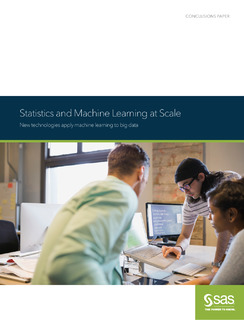Imagine getting into your car and saying, “Take me to work,” and then enjoying an automated drive as you read the morning news. We are getting very close to that kind of scenario, and companies like Ford expect to have production vehicles in the latter part of 2020. Driverless cars are just one popular example of machine learning. It's also used in countless applications such as predicting fraud, identifying terrorists, recommending the right products to customers at the right time, and correctly identifying medical symptoms to prescribe appropriate treatments.
The concept of machine learning has been around for decades. What's new is that it can now be applied to huge quantities of data. Cheaper data storage, distributed processing, more powerful computers and new analytical opportunities have dramatically increased interest in machine learning systems.

